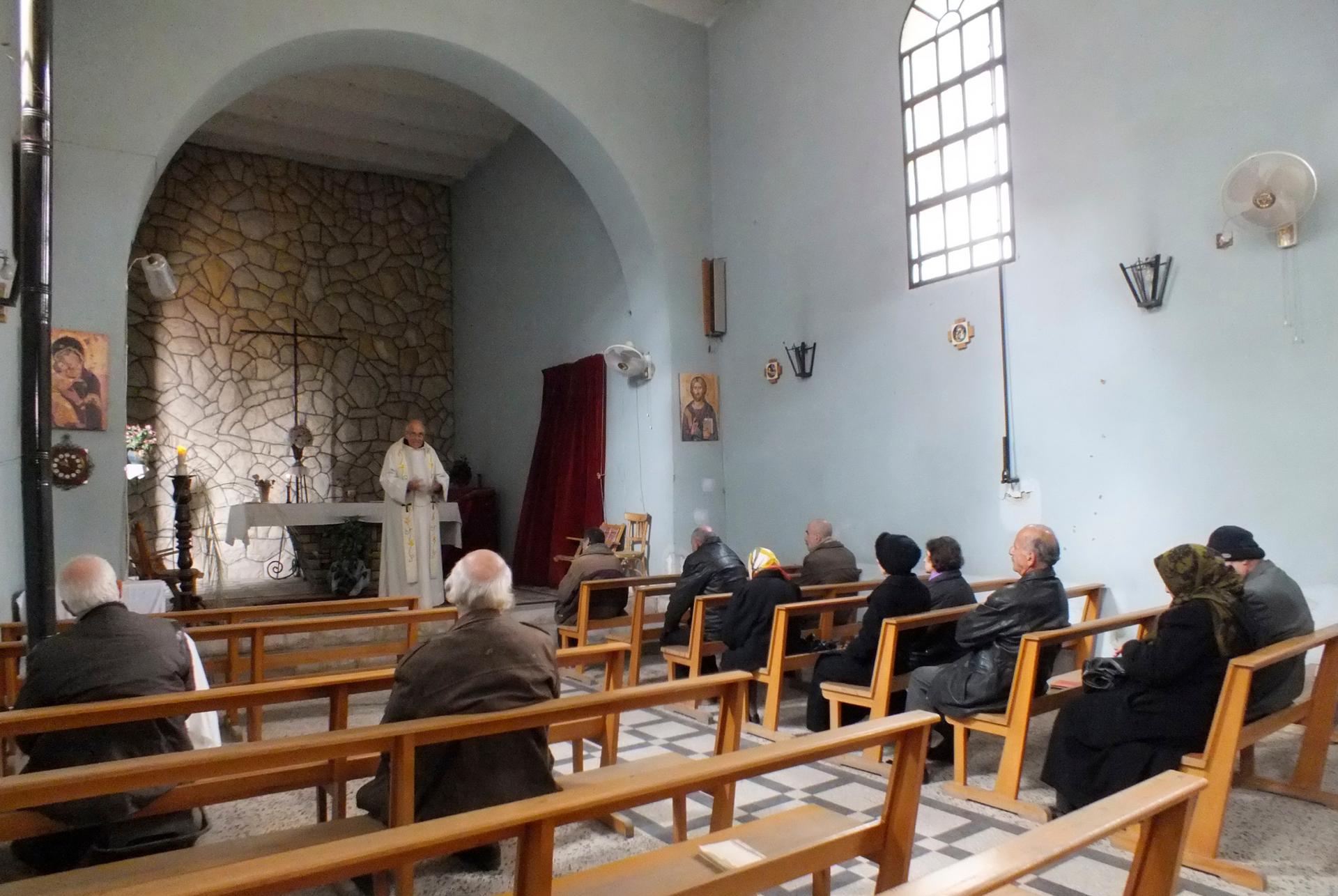Syria’s Christians find themselves, once again, persecuted and taxed for their religion
Syrian Christians in a church in the besieged area of Homs, February 2, 2014. The pastor says says there are only 66 Christians left in the besieged area.
Throughout the long, turbulent history of the Middle East, when your religion is in the minority, you often pay dearly for it. That seems to be true for Christians in Syria now, in areas controlled by Islamic extremists.
Roman Pagans taxed and persecuted Jews and early Christians. Christians taxed and persecuted Jews and Pagans. When Islam rose to power, Muslim rulers imposed a special tax (called jizya) and other harsh measures on Jews and Christians.
Now jizya is being revived in Syria, where rebel groups are fighting the regime of President Bashar al-Assad — and also fighting among themselves, as the more moderate opposition groups battle against extremist Islamist rebels.
The northern city of Raqa is under the control of a rebel group called the Islamic State of Iraq and Syria, or ISIS. And ISIS is telling Christians they must pay a yearly tax to the extremist group for their own "protection," says Reverend Nadim Nassar, a Syrian Christian pastor who now lives in London.
Nassar is closely following the plight of his fellow Christians in Syria. “Imagine,” he says, “the minorities in Syria, which are part of the social fabric of the society, are asked either to pay a levy, a tax — an Islamic tax — for their protection, or become Muslims, or get killed.”
Nassar says the threat to Christians, in Raqa and throughout Syria, is due to foreign Islamist extremists who have flooded into Syria from around the world “to bring the big Islamic state they dream about to Syria.”
“Ninety percent of the jihadists in Syria are foreigners,” he says. “We lived with Muslims and other minorities in Syria for centuries, and the secret is coexistence. Now, we are being persecuted only for being Christians.”
The situation has left the minority Christians with few choices, he says. “The church leaders are saying we [will] pay,” says Nassar, “because we don't want to convert to Islam, and we don't want to be killed.”
Nassar points out that Syria was the birthplace of Christianity. He says his own family goes back to Saint Paul, who became a Christian on the road to Damascus — which is today the capital of Syria.
Syrian President Bashar al-Assad claims his forces are fighting to protect Christians in Syria, but Nassar says that protection is a myth.
“The regime protects itself,” he says. “The regime uses Christians as a political card, and the opposition uses the minorities and Christians as a political card. Nobody has any interest to protect the Christians.”
“We are between two fires,” he continues. “One fire is the regime, which is a dictatorship. The other fire is a fragmented, lost opposition. They don't know where to start building the country.”
Nassar sees some hope in the peace talks that recently took place in Geneva. He calls the talks historic.
“Never in the modern life of Syria could people from different parties of different political persuasions sit around a table and talk. So we need to acknowledge that. And then we need to build on that."
He says, “Dialogue is never too late, and this is the only way that the Syrian conflict could be resolved, because no one has the advantage militarily.”
